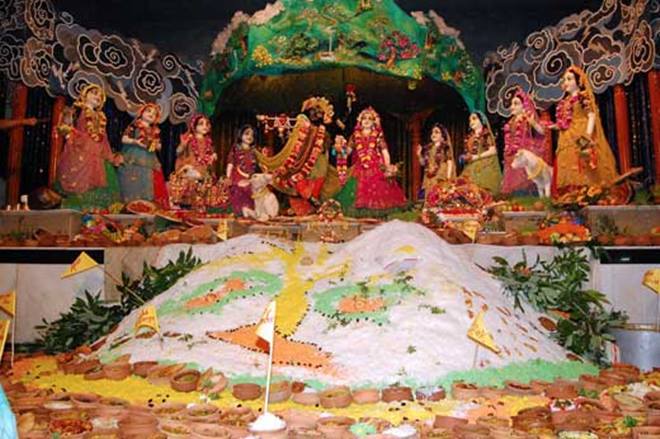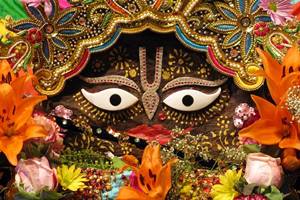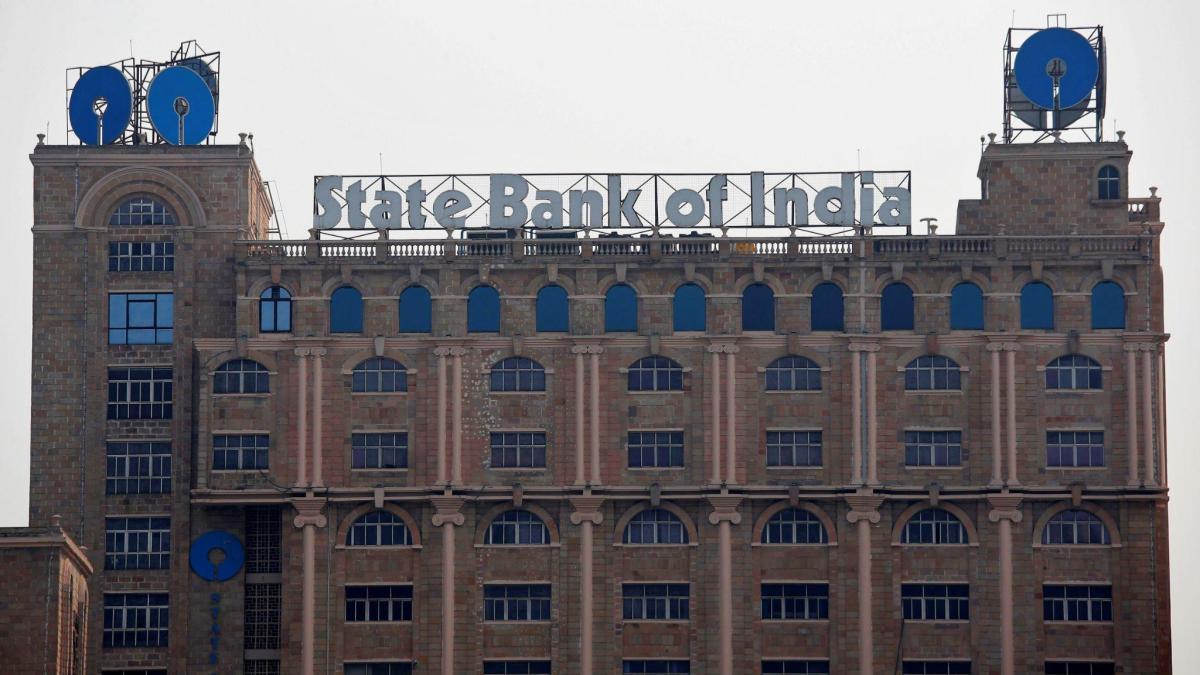Govardhan Puja – Also known as ‘Annakut’, is commemorated a day after Diwali. Methodologically, the day is observed in remembrance of Lord Krishna when he protected the entire region of Vrindavan from the wrath of showers by resisting an entire hill of ‘Govardhan’. It is considered that, at this day Lord Krishna had defeated the Lord of heaven, known as Indra. Lord Krishna told the people of the Vrindavan dham to worship the Nature because only the Nature is nurturing you. He taught people that worship the Govardhan Mountain (which brings rain to the earth) and stop worshiping Indra. Such type of message of the Lord Krishna to the people was generally to teach the people to take care of the nature. In reverence, prayers are offered to mounds of food grains and sweets.
Significance of Govardhan Puja
A great mountain of the food, called as the Govardhan Mountain, is adorned by the people at this occasion. It is considered that the Govardhan Mountain was lifted by the Lord Krishna in order to save the life of people from the arrogant Indra. Lord Indra was throwing thunder and a lot of rain over the earth and lord Krishna had saved the millions of life by lifting the Govardhan mountain on his little finger. From then, the Annakut puja is performed with the immense passion and eagerness by the people in various northern Indian states such as Punjab, Haryana, Uttar Pradesh and Bihar.

Puja timings
Govardhan Puja Pratahkal Muhurat = 06:36 to 08:47 (31/10/2016)
Duration = 2 Hours 11 Mins
Govardhan Puja Sayankal Muhurat = 15:21 to 17:32 (31/10/2016)
Duration = 2 Hours 11 Mins
Pratipada Tithi Begins = 23:08 on 30/10/2016
Pratipada Tithi Ends = 01:39 on 1/11/2016
How Govardhan Puja is celebrated
In some states, Govardhan Puja is celebrated by making the hillocks of cow-dung which represents the Mount Govardhan. Then people decorate the hillocks by flowers and worship them. Devotees make rounds around the hillocks and pray to Lord Govardhan to save their life as always. At some places, it is celebrated as a part of the Diwali such as the Padva or Bali Pratipada to commemorate the King Bali. And at some places, it is enjoyed as a Gujarati New Year because the Vikram Samvat begins at this day.








